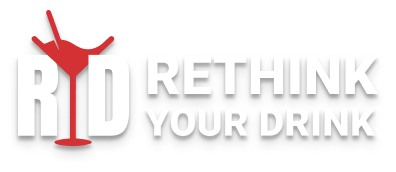Long-term heavy drinking can damage the heart, arteries, or other blood vessels throughout the body. This condition is called cardiovascular disease.
Drinking alcohol can:
Cause persistently high blood pressure
Persistently high blood pressure is called hypertension, and it is a serious risk factor for heart attack or stroke. High blood pressure can also be caused by weight gain from alcohol. If you have preexisting high blood pressure, it is best to cut out alcohol altogether or drink only occasionally and in moderation.
Long-term alcohol consumption can cause alcoholic cardiomyopathy
The short-term effects of alcohol (pain, nausea, you know the feeling) are easy to recognize. However, the ways in which it affects your body over time and is important to understand. One of the effects of alcohol on your heart is alcoholic cardiomyopathy. This is a condition where the heart’s pumping function becomes weaker and the heart becomes larger due to changes when large amounts of alcohol are consumed.
Increased heart rate
One of the precise functions of the heart is to maintain a rhythm. A normal heart rate is on average around 60 to 100 beats per minute when your body is at rest. However, alcohol can cause your heart rate to temporarily jump, and if it exceeds 100 beats per minute, it can cause a condition called tachycardia. Too many episodes of tachycardia can lead to more serious problems, such as your heart beating too fast or going into an irregular rhythm, which can cause heart attacks and strokes.
Excessive damage can cause your heart to beat irregularly.
There are many different types of heart disease. Ischaemic heart disease (IHD), which can lead to sudden death from a severe heart attack. It causes the typical chest pain known as angina pectoris and is also common in problems ranging from minor heart attacks to chronic heart failure.
CHD occurs when fatty deposits gradually build up on the walls of the arteries in the heart (coronary arteries), where blood clots can form. These deposits cause the artery to narrow, making it difficult for the heart muscle to get the oxygen and nutrients it needs to function normally.
The most common symptoms of coronary heart disease are known as “angina pectoris”. These are usually chest pain and shortness of breath on exertion.
What is a heart attack?
A heart attack occurs when one or more of the coronary arteries become blocked. This stops the blood supply to the heart muscle, which is deprived of oxygen. This means that the heart cannot pump properly and in severe cases it can stop beating completely (cardiac arrest). If cardiac arrest is not reversed (with resuscitation and possibly a defibrillator), the person will die.
What is heart failure?
Damage to the heart muscle can lead to heart failure – when your heart can no longer pump blood effectively around your body. This leads to symptoms such as swollen ankles and shortness of breath that can affect you for the rest of your life.
Protect your heart
The good news is that there are positive lifestyle changes you can make to protect your heart. Reducing your alcohol intake is one way to keep your heart healthy. You should never consider wine or other alcohol as a way to reduce your risk of heart disease. In the past, some studies have shown that drinking one or fewer drinks a day was linked to the lowest chance of dying from a stroke. However, more recent data shows that there is no amount of alcohol that is truly safe. The myth that wine is good for your heart is no longer true.




